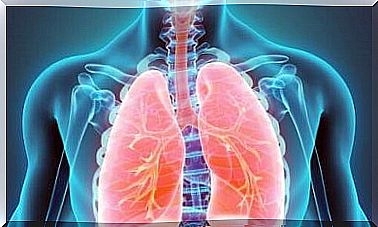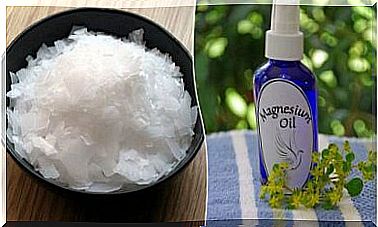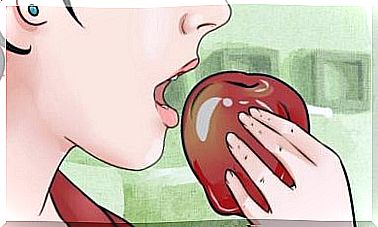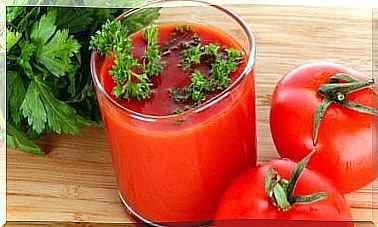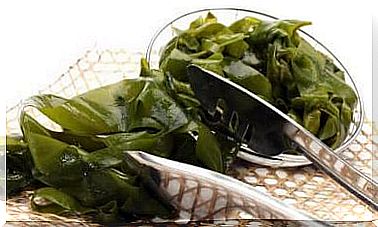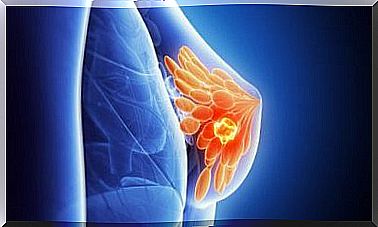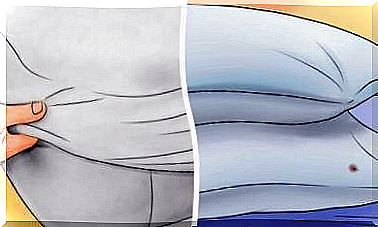7 Symptoms That Affect Your Face When You Are Suffering From Nutritional Deficiencies
Although we may sometimes think that our face can be affected by a lack of external care, several of the signs such as dryness or acne, may be due to vitamin or nutritional deficiencies.
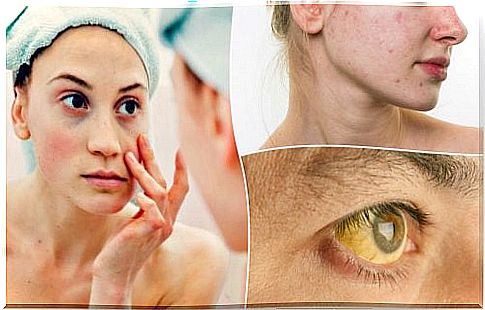
Most of us worry about taking care of the appearance of our face, not only because the skin tends to suffer from blemishes, but also because we know that the sun and toxins can damage it. .
However, sometimes, despite our special care and the use of cosmetic products, we notice that our face has changes which, although not serious, can be difficult to treat.
The problem is, we don’t know that these symptoms go beyond aesthetics. They are indeed very often due to nutritional deficiencies in our body.
Although it seems simple to fight them with external treatments, the lack of nutrients complicates the results and will eventually cause them to reappear again.
We will therefore share with you below the 7 skin signs that tend to appear in case of nutritional deficiencies.
Discover them all!
1. Acne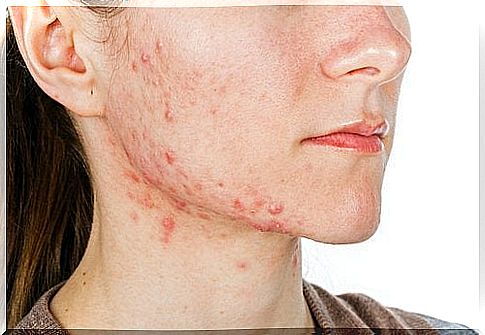
Acne is a cosmetic problem that can appear due to the deficiency of vitamins A, E and B complex.
Although there are many hormonal and environmental factors that influence its development, the lack of these nutrients can increase the risk.
It is therefore essential, if you suffer from it, to avoid foods rich in fat and, on the contrary, to consume the following foods:
- Dried fruits
- Green vegetables
- Sea food
- Olive oil
- Eggs
- Lawyer
2. Dry skin
Excess dryness of the face can occur due to nutritional deficiencies due to poor diet and prolonged exposure to the sun.
These factors in fact prevent the correct synthesis of vitamins and minerals, which, in the medium term, causes noticeable imperfections.
The lack of vitamins A and C are usually the most associated with this type of symptoms.
So be sure to add to your diet:
- Carrots
- Citrus
- Blueberries
- Green vegetables
- Plums
- Peppers
- Pumpkin
3. Puffy eyes
Bags that form under the eyes are blemishes that appear due to water retention and poor circulation.
These are also the result of the lack of minerals such as potassium, magnesium and iodine.
Their low absorption then triggers an inflammatory response which, in the face, is noticeable in the eye area.
To avoid this, therefore eat foods such as:
- Bananas
- Seaweed
- Olive oil
- Himalayan salt
- Blue fish
- Red radish
- spinach
- Dried fruits
4. Pale lips
When the lips and gums are pale, it is very likely that the person has iron deficiency anemia.
This nutrient, which is key in the formation of red blood cells, indeed helps maintain the characteristic color of the mouth, which in most cases tends to be pink or reddish.
To absorb it, try increasing the intake of:
- lean meats
- Dried beans
- spinach
- Liver of beef
- Dried fruits
- Peppers
- Oregano
- Sea food
5. Cracked lips
Most people, at some point, have cracked lips. This symptom is common due to sudden changes in climate or damage to the skin after being exposed to the sun without protection.
However, when it recurs, it could also be a sign that the body is deficient in water and B complex vitamins.
These, together, indeed help to maintain an optimal process of cell regeneration to keep the lips soft and hydrated.
If this is your case, try adding foods such as:
- Citrus
- Dried fruits
- Eggs
- lean meats
- Fish
- Legumes
- Whole grains
- Apples
- Mangoes
- Lawyer
6. Yellow eyes
Yellow eyes are produced by a condition called jaundice, which is characterized by an increase in bilirubin in the tissues.
This can be caused by diseases of the liver and gallbladder, but also by the deficit of nutrients such as:
- Vitamins (A, B, C, D, E)
- Lecithin.
- Minerals (magnesium, zinc)
To control it, avoid processed foods and also increase the consumption of:
- Vegetables (artichokes, spinach, kale, peppers, radishes, tomatoes)
- Citrus
- Fruits (grapes, apples, pineapples)
- Barley
- Aromatic herbs (coriander, basil)
7. Pale skin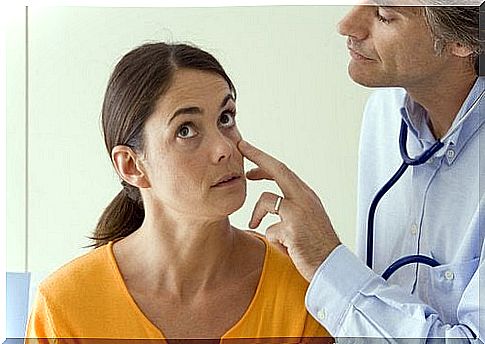
Pale skin can be produced by a deficiency of iron and vitamin D, which is common in people with anemia.
The decrease in these substances indeed affects the circulation of the blood and, consequently, compromises the process of cellular oxygenation and the nutrition of the skin.
To control it, try incorporating foods such as:
- lean meats
- Sea food
- Liver oil
- Fortified cereals
- Fortified soy products
- Mushrooms
- Eggs
Do you identify these symptoms? If you notice any of these signs on your face, see your doctor and ask for relevant exams to find out if they are due to a nutritional deficiency.
Either way, try to consume the recommended foods to control these symptoms in a short time.
